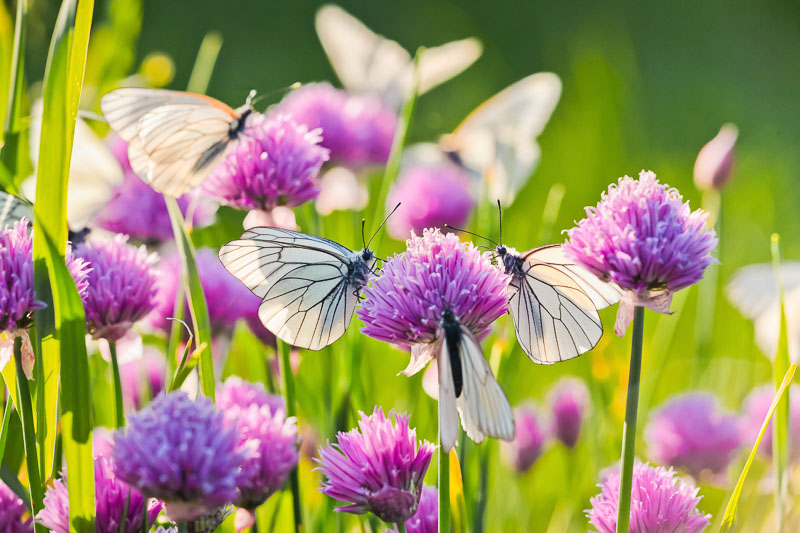Grow Chives: Culinary Delight & Garden Charm in One!
Chives, known scientifically as Allium schoenoprasum, are a delightful and easy-to-grow herb that belongs to the onion family. Not only are they prized for their culinary uses, but they also offer ornamental value to gardens with their delicate purple flowers.
Appearance: Chives feature slender, tube-like green leaves that grow in dense clumps, reaching about 12 to 18 inches (30-45 cm) in height. In late spring or early summer, they produce lovely, round, purple flowers that are also edible and add a mild onion-like flavor to dishes.
Culinary Uses: Chives are a staple in many kitchens, famous for their gentle onion flavor. They are commonly used as a garnish or added to salads, soups, omelets, and potato dishes. The leaves should be chopped finely and added towards the end of cooking to preserve their delicate flavor.
Growing Conditions: Chives are remarkably unfussy and can thrive in a wide range of conditions. They prefer full sun but will also tolerate partial shade. They grow best in rich, well-drained soil and benefit from regular watering, especially during dry periods. Master the art of growing and caring for Chives.
Maintenance: This herb is low maintenance. Regular trimming of the leaves encourages new growth. It’s also advisable to deadhead the flowers if you don’t want them to self-seed.
Health Benefits: Rich in vitamins and minerals, chives offer various health benefits, including improving digestion and having antioxidant properties.
Companion Planting: In the garden, chives can be a great companion plant. Their onion-like scent helps deter aphids, snails, slugs, mosquitoes, and Japanese beetles and makes them great companion plants for tomatoes, carrots, broccoli, cabbage, roses, and strawberries. Deer or rabbits do not favor them.
Ornamental Value: Beyond their culinary use, the purple flowers of chives make them an attractive addition to flower beds and herb gardens. Chives have also insect-repelling properties.
Caution: It’s important to note that chives are toxic to cats, dogs, and horses.

